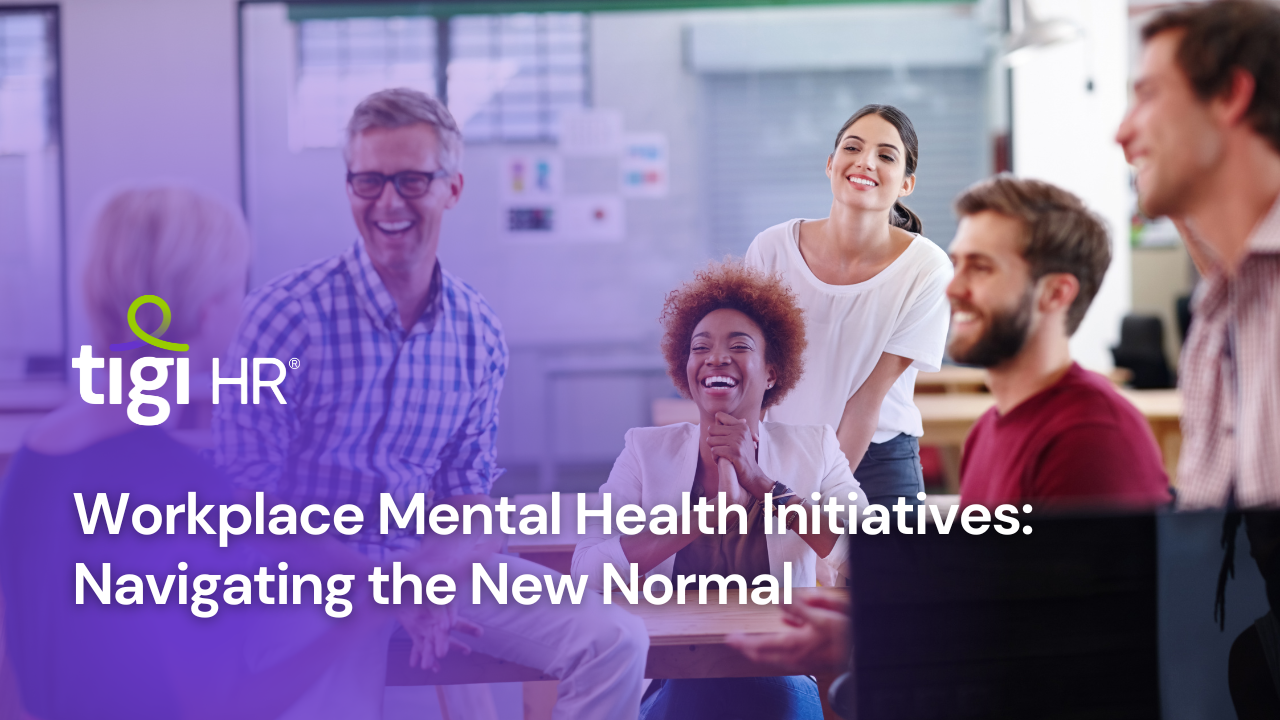The workplace, once viewed solely as a hub for professional productivity, has evolved into a complex ecosystem where employees’ mental health plays a pivotal role in overall organizational success. In the wake of a global pandemic that reshaped the way we work, the importance of workplace mental health initiatives has never been more pronounced. In this article, we delve into the changing landscape of workplace mental health, the significance of proactive initiatives, and how organizations can navigate the new normal to foster well-being among their employees.
The New Normal: A Paradigm Shift in Work and Well-being
The COVID-19 pandemic catalyzed an unprecedented shift in the world of work. Remote work, once considered an exception, became the norm for many industries. As employees grappled with isolation, blurred work-life boundaries, and uncertainty, the impact on mental health became palpable.
Statistics highlight the profound effect of the pandemic on mental well-being:
- According to a report by the Kaiser Family Foundation, 53% of adults in the United States reported that their mental health had been negatively impacted by worry and stress related to the pandemic.
- A survey by the World Health Organization (WHO) revealed that the COVID-19 pandemic disrupted mental health services in 93% of countries worldwide, even as the demand for such services surged.
The Role of the Workplace in Mental Health
As individuals spent a significant portion of their waking hours working, the workplace became a focal point for addressing mental health challenges. Organizations had to pivot from mere awareness of mental health to actively implementing initiatives that promote well-being.
Authentic Statistics and Insights:
Let’s begin by exploring some authentic statistics and insights that underscore the significance of workplace mental health initiatives:
- Mental Health is Costly: According to the World Economic Forum, mental health conditions cost the global economy $1 trillion in lost productivity each year.
- Stress is Pervasive: The American Institute of Stress reports that job-related stress costs U.S. businesses approximately $300 billion annually in absenteeism, turnover, reduced productivity, and healthcare costs.
- A Positive Work Environment Matters: Gallup’s State of the Global Workplace report found that employees who feel their opinions are valued at work are 27% more likely to report higher engagement levels.
Proactive Initiatives for Workplace Mental Health
In the new normal, organizations need to recognize that workplace mental health initiatives are not just nice-to-have perks but strategic imperatives. Here are key initiatives organizations can consider:
1. Mental Health Awareness Programs:
Fostering awareness is the first step. Conduct workshops, training sessions, and seminars to educate employees about mental health issues, reducing stigma, and accessing resources.
2. Employee Assistance Programs (EAPs):
EAPs provide confidential support to employees facing personal or work-related challenges. They offer counseling, legal assistance, financial advice, and more.
3. Flexible Work Arrangements:
Continue to offer flexible work arrangements, allowing employees to manage their workloads and personal lives more effectively. Flexibility can reduce stress and improve work-life balance.
4. Regular Check-Ins:
Encourage managers to conduct regular one-on-one check-ins with their team members. These conversations provide an opportunity for employees to express concerns and receive support.
5. Remote Work Policies:
If remote work is part of your organization’s strategy, establish clear policies that address the unique challenges of remote work, including isolation, burnout, and maintaining work-life boundaries.
6. Mental Health Resources:
Provide access to mental health resources such as counseling services, hotlines, and apps designed to support emotional well-being.
7. Encourage Time Off:
Encourage employees to use their vacation and personal days. Taking time off is essential for recharging and preventing burnout.
8. Employee Resource Groups (ERGs):
Establish ERGs focused on mental health. These groups can create a supportive community within the organization and help reduce the stigma associated with mental health issues.
Measuring the Impact
Effective workplace mental health initiatives require continuous evaluation and measurement. Organizations can use various metrics to gauge their success, such as:
- Employee engagement and satisfaction surveys
- Absenteeism rates
- Turnover rates
- Productivity levels
- Utilization of mental health resources
- Health insurance claims related to mental health
Conclusion: Navigating the New Normal
The new normal demands a holistic approach to workplace mental health. Organizations must recognize that mental well-being is not just an individual responsibility but a collective one. When employees are mentally healthy and feel supported, they are more engaged, productive, and resilient in the face of challenges.
The statistics and insights mentioned in this article underscore the profound impact of mental health on the workplace and the economy as a whole. To thrive in the new normal, organizations must prioritize mental health initiatives, create a culture of support, and provide resources that empower employees to manage their well-being effectively.
In this evolving landscape, it is crucial for organizations to stay informed, adapt their policies, and continuously assess the impact of their initiatives to foster a mentally healthy and thriving workforce. The workplace of the future is one where well-being is a core value, and proactive mental health initiatives are the compass guiding organizations toward a brighter, more resilient future.
Also explore: Mentorship Programs





